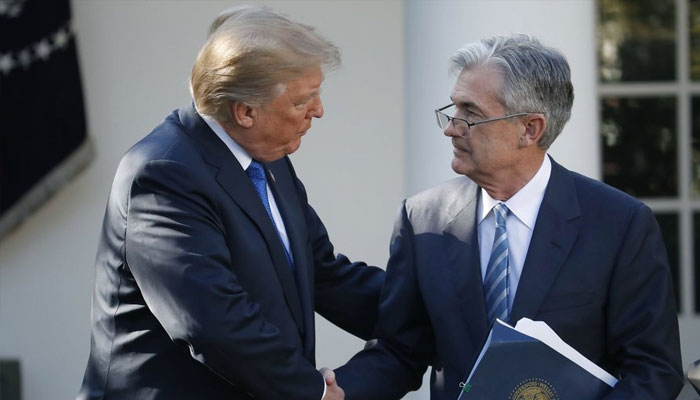
US Central bank hints at Interest rate cuts in the Future. The Fed currently finds that intervention to steer the value of the dollar is unnecessary and therefore leaves interest unchanged.
Jerome Powell, the president of the American central bank (the Fed), declared that to the great displeasure of President Trump.
However, Powell hints at a possible interest rate cut in the near future, because inflation seems to be falling somewhat.
The American president wants interest rates to go down so that the dollar becomes cheaper and exports are boosted.
Goods are then relatively less expensive to buy abroad.
According to the report, Trump even had it investigated at the end of last year,
whether it is possible to remove Powell from his position if he uses an interest that Trump does not like.
That would be highly unusual since politics should not interfere with the policy of the central bank.
Europe
In the meantime, the chance that the European Central Bank (ECB) will soon be taking measures to maintain the value of the euro seems to be much higher since this week.
ECB President Mario Draghi stressed at the ECB’s annual meeting in Portugal that “further stimulus measures will be needed” if nothing improves in Europe in the near future.
What these measures will be exactly is not certain.
It seems that Draghi will choose to further lower interest rates, which will make borrowing even cheaper.
He could also decide to buy up government bonds again, according to ING economist Carsten Brzeski.
‘U-turn’
With that, the ECB has made a U-turn, says Brzeski.
“At the beginning of this year, there was still discussion about raising interest rates.
Two weeks ago, the door to a cut at an ECB meeting was opened a little bit, and the question was:
What can happen so that the bank has to intervene? Now the problem: what should be done so that the bank does not have to intervene? “
The persistently low inflation is a significant concern in the eurozone.
The ECB wants the euro to be worth about 2 percent less every year,
so that people and companies have a small incentive not to spend their money for too long, but to spend it.
But in Europe, we have been staying well below that 2 percent for a long time now.
The ECB has taken several significant steps in recent years to turn that tide.
For example, the central bank has purchased loans on a large scale and has lowered interest rates,
which should boost companies to pump more money into the economy.
In theory, this would lead to more demand for goods and work; wages could rise,
and companies would want to earn back the rising costs by raising their prices.
And if rates rise, a euro is, and so there is inflation.
Persistent uncertainty
But the policy of the ECB has not achieved this sufficiently.
Persistent uncertainty about the global trade war and the Brexit continue to bother the European trade economy.
And the central bank has few options left for further intervention.
It ensures that the confidence that the ECB will succeed in boosting the figure in the coming period is diminishing.
With his speech, Draghi hopes to regain that confidence somewhat.
Several conditions can prevent the ECB from intervening — for example, stable economic growth rates in Europe or more industry confidence in the economy.
And the eyes will also be in the US in the coming period.
If the Americans were able to reach an agreement with the Chinese to bury the hatchet in the trade war,
it is more likely that Draghi could remain on his hands until he delivered over the baton to his successor to be appointed in October.
